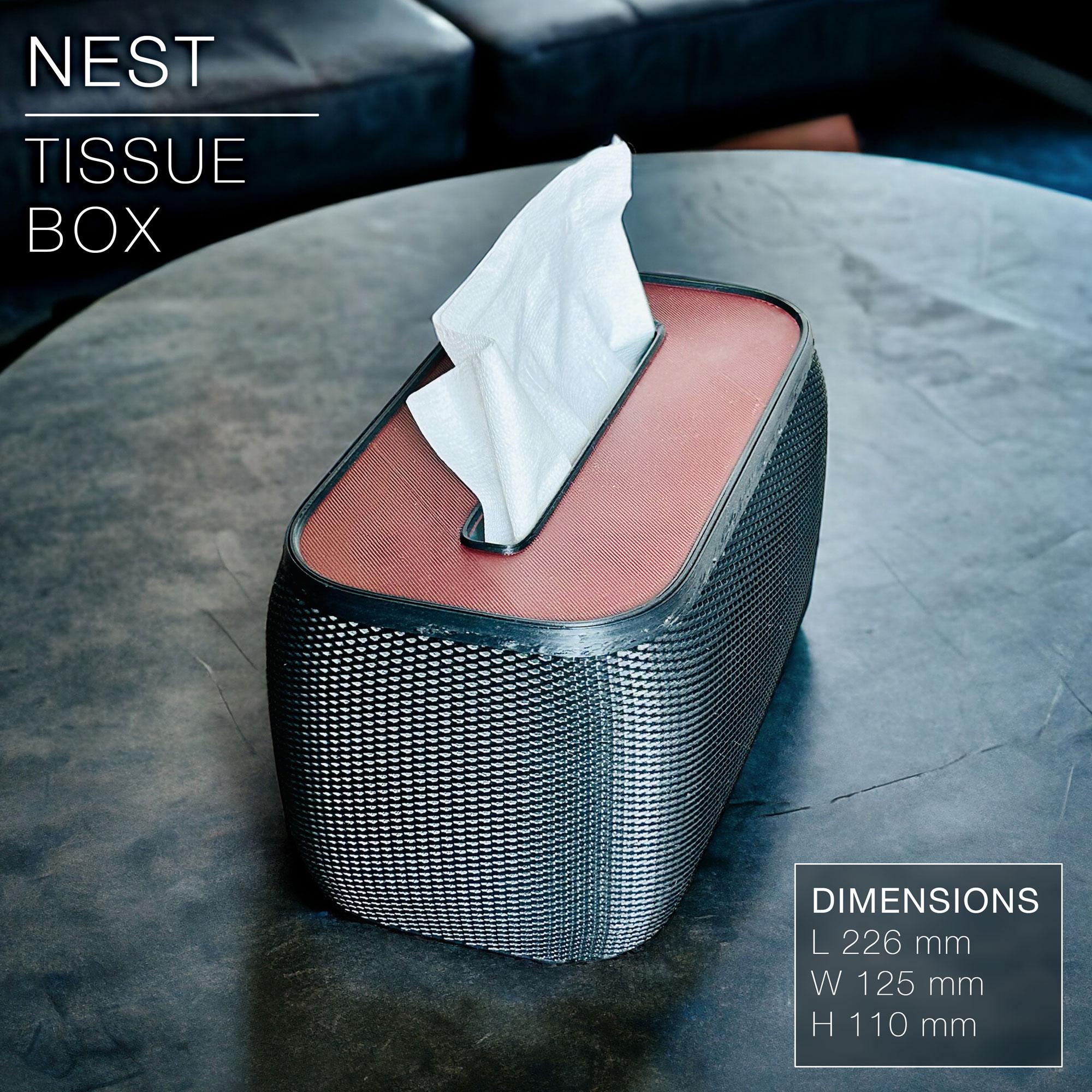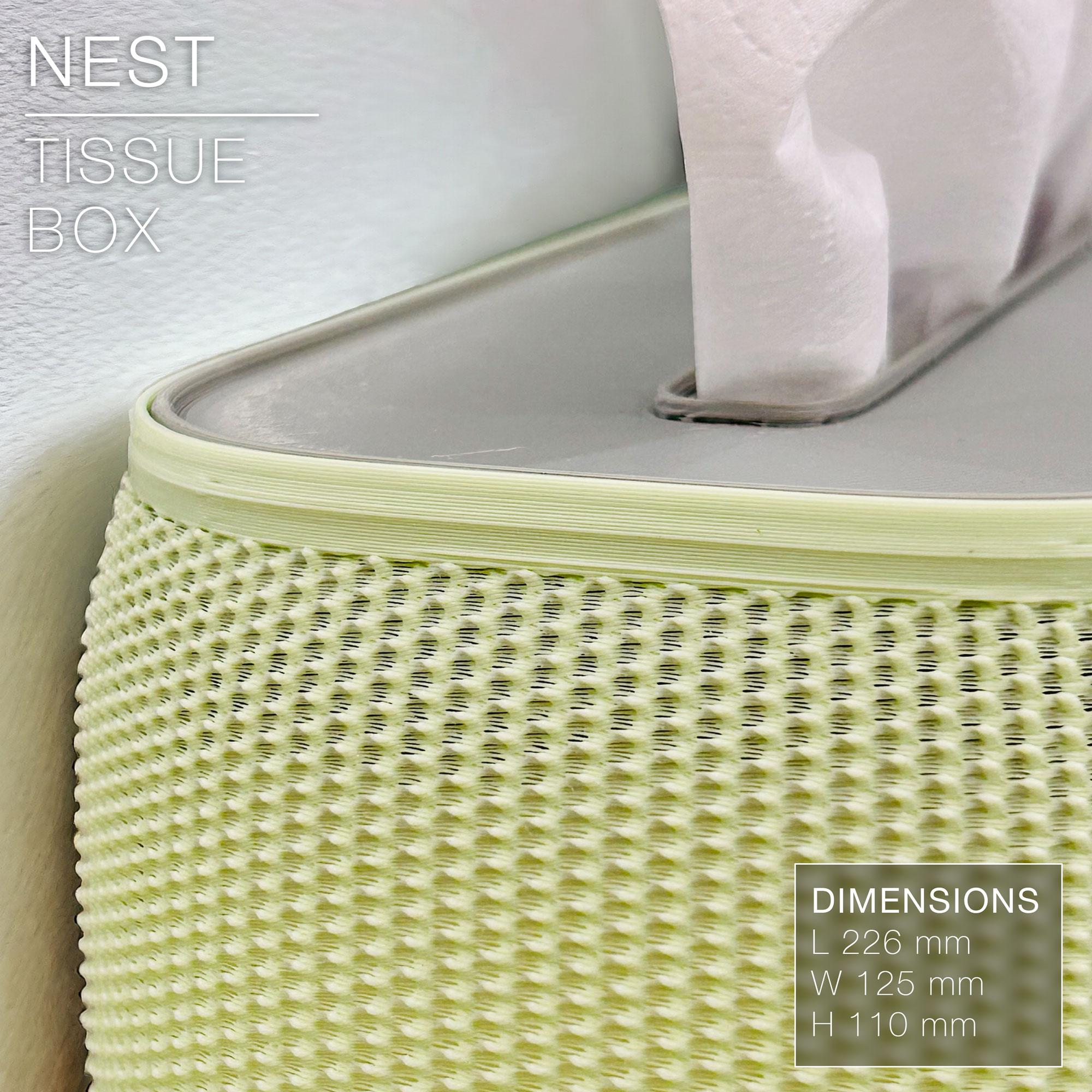NEST | Wicker Tissue Box
A slicker wicker tissue flicker.
Meet NEST, a fast-print tissue box fashioning a stylish wicker texture!
Any 3D printer can print it without exceptional print settings and a regular 0.4mm nozzle. (See settings below)
Happy printing!
DIMENSIONS | L226 mm x W 125 mm x H 110 mm
PRINTING | Box ~2h | Lid ~1h
V2 UPDATE: The weave on the latest version (V2) is twice as thick as the original version. It is now made of 2 walls (instead of 1 wall for the original version). So it is much stronger and prints much cleaner. Also, I added a clip system so the lid stays on when you pull the tissues.
3D PRINT SETTINGS The box and lid both print upright. (the STL files are all already oriented properly) No need for supports, or brim.
For BambuLab users, turn on "Arachne" mode in the "Wall Generator" settings. Otherwise Bambu Studio will detect some of the weave layers as empty.
Layer height: 0.2 or 0.3mm/layer (the ones in the pictures were printed in 0.3mm/layer) Wall line count: 2 Build adhesion type: None Supports: None Infill: 15%
If you want the top lips of the lid in a different colour than the lid (like the pink lid on the pictures), you can modify your Gcode to schedule a filament change at the layer where the lip starts. First, slice your model. Then, in CURA go to: Extensions > Post Processing > Modify Gcode > Add Script > Filament Change And in there you input the layer where you need the filament change to happen. Slice your model once again so it updates your Gcode. And there you go! Ready to print!














